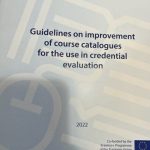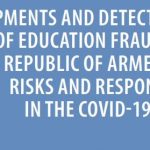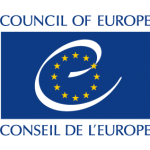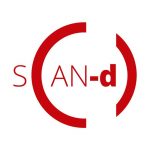Our Projects
ArmEnic, in cooperation with its partner organizations, regularly implements projects for the enhancement of the recognition process and the purposeful use of the recognition tools.
ArmEnic, in cooperation with its partner organizations, regularly implements projects for the enhancement of the recognition process and the purposeful use of the recognition tools.
NATREC-RQ project aims to enhance the institutional capacities of the Armenian higher education institutions (HEIs) by developing a recognition manual.
Over the years of its operations, ArmENIC has developed extensive experience in assessing refugees’ qualifications with the methodology and tools tested in the framework of various projects.
With the increased number of refugees or persons who cannot fully prove their education, there is a need for the Armenian HEIs to have a structured approach to the evaluation of such cases by introducing transparent mechanisms and tools for the recognition of qualifications.
Thus, the Manual will address the recognition issues in HEIs, specifically focusing on the refugees’ qualifications. It will also serve as a practical guide to support the staff of the Armenian HEIs in charge of recognition of qualifications by describing methodology, tools, and consequent steps required to evaluate the refugees’ qualifications.
The Manual will foster the compliance of the institutional recognition procedures with the quality assurance processes following ESG2015 and ensure that coherent institutional policies on recognition are based on the principles and procedures outlined in the LRC.
 Micro-credentials for Higher Education Systems of Georgia and Armenia (MICRO-GEAR)
Micro-credentials for Higher Education Systems of Georgia and Armenia (MICRO-GEAR)Micro-GEAR is supporting structural reforms in the higher education sector of the South Caucasus region, primarily focusing on Georgia and Armenia, with the aim of introducing and facilitating the broad proliferation of micro-credentials as a tool for improving relevance, quality and flexibility of higher education.
In line with the European Council’s Recommendation on a European approach to micro- credentials for lifelong learning and employability, the project will update the National Qualifications Frameworks in both countries, build national consensus over principles of micro-credentialing, stimulate educational activities leading to micro-credentials and facilitate their mutual recognition.
In order to validate the suggested reforms, to provide feedback to the policy level, as well as to facilitate the proliferation of micro-credentials, the project will implement the pilot programme covering the capacity building on micro-credentials and the development of educational units leading to micro-credentials.
Finally, the project dissemination and sustainability activities will spread the obtained results to all relevant education and training providers in the beneficiary countries and wider in the region.
List of participating organisations:
Georgian Technical University, Ge (Coordinator)
University Of Georgia, Ge
Ministry Of Education And Science Of Georgia, Ge
National Center For Educational Quality Enhancement, Ge
Georgian Research And Educational Networking Association, Ge
Universitat Des Saarlandes, De
Universidad Carlos III De Madrid, Es
Universita Degli Studi Europea, It
Associazione Cimea, It
Giraf Pm E.K., De
Center For Ecological-Noosphere Studies National Academy Of Sciences, Am
Ministry Of Education, Science, Culture And Sports, Am
National Center For Professional Education Quality Assurance, Am
Yerevan State University, Am
Eurasia International University, Am
National Information Center For Academic Recognition And Mobility, Am
DETECT project aims to equip stakeholders in education with the competences necessary to prevent, detect, and combat education fraud through developing and conducting a training course based on the outcomes and recommendations of the study. The training will provide a comprehensive understanding of the problem of education fraud and techniques needed to prevent, detect and combat it. It will also contribute to raising awareness, prevention, early detection, legal and ethical considerations. Overall, the training will be a valuable asset for the stakeholders in education to protect their resources, reputation, and credibility. By providing participants with the knowledge, skills, and tools necessary to detect and prevent fraud, the training will reduce the impact of fraud and promote a culture of integrity and accountability.
ArmENIC is one of 5 ENIC centers that won a grant from the Council of Europe. The purpose of the grants is to contribute to the implementation of the mission of ENIC centers by promoting cooperation and mobility in the field of education, as well as ensuring fair, transparent and non-discriminatory recognition of higher education qualifications.
In 2021 a team of experts from ArmENIC and a Council of Europe expert, with the financial support of the Council of Europe, conducted the study on “Developments and Detection of Education Fraud: Risks and Responses in the COVID-19 Age”. The study was initiated to reveal the need caused by the COVID-19 pandemic to reconsider the traditional tools and policies used for transparency, accountability and anti-corruption measures in education.
The results of the study revealed that education fraud and corruption practices not only hinder access to all levels of education, but also affect the quality of education, the credibility of research results and challenge the recognition of qualifications. Based on the outcomes of the study, the existing policies and procedures need to be reviewed and adapted taking into account the way digital technologies have impacted the proliferation of education fraud.

The objective of the project is to explore the role of online course catalogues of higher education institutions with the main focus on the micre-credentials. Provision of transparent and reliable information on the courses offered by higher education institutions facilitate recognition of qualifications including micro-credentials and may lead to automatic recognition of HE qualifications.
Partners of the project are
The kick-off meeting was held in Riga, Latvia on 10.03.2023 with participation all the partners. The main aim of the meeting was to discuss work packages and their milestones as well as the responsibility of the partners.
 Study on “Developments and Detection of Education Fraud: Risks and Responses in the COVID-19 Age”
Study on “Developments and Detection of Education Fraud: Risks and Responses in the COVID-19 Age”The main objective of the study is to present the impact of COVID-19 on various forms of fraud and corruption in the field of education in Armenia. The study also presents initiatives aimed at combating educational fraud in Europe, as well as the students’ perspective.
The study also included developments related to the institutions providing international education in the Republic of Armenia from 2017 to 2021, and parallels were drawn with the study conducted by ArmENIC in 2017. Based on the results of the study, the authors also made recommendations.
The CoE’s highlight about the study is available here, and the handbook in English can be found here.
The goal of the project is capacity building in Armenia and Norway to enhance further cooperation between Armenian and Norwegian higher education institutions.
The project contributes to the improvement of university management, including implementation of reforms related to the Bologna Process. It also focuses on building solid structures and practices of international admissions in Armenia.
Partners
 European Qualifications Passport for Refugees (EQPR)
European Qualifications Passport for Refugees (EQPR) The project was launched in 2017 as a pilot initiative run by the Council of Europe’s Education Department in the framework of the Action Plan Building Inclusive Societies. Starting from January 2018, a new phase of the project that will last three years (2018-2020) is being implemented. The project aims at developing tools to support refugees to integrate and contribute to their new host communities. ARMENIC participates in the new phase of the project.
EQPR is a document providing an assessment of the highest achieved qualifications of refugees claimed to have based on available documentation and a structured interview. It also presents information on the applicant’s work experience and language proficiency.
EQPR is the only international instrument developed to facilitate the recognition of refugees’ qualifications in the absence of full documentation. The EQPR can also be used if refugees move to new host countries in Europe without the need to undergo additional assessments.
EQPR is not a passport nor a substitute for identification or educational documentation. It does not guarantee admission to studies or employment. Neither is it a formal recognition act. EQPR is intended to help refugees to progress in their studies or employment.
Within the project, ARMENIC together with its European partners will conduct assessment sessions in the RA taking into consideration a large number of Syrian refugees (or people in a refugee-like situation) in the RA. For those who successfully pass the interviews, the EQPR will be issued.
The project also envisages creating a pool of trained credentials evaluators using the European Qualifications Passport for Refugees’ Methodology.
Partners
 “Boosting Armenian Universities Internationalization Strategy & Marketing”/BOOST, Erasmus+
“Boosting Armenian Universities Internationalization Strategy & Marketing”/BOOST, Erasmus+The project intends to foster and promote the international dimension of the Armenian higher education institutions (HEIs) through the development of a national and institutional policy framework and tools for internationalization in accordance with the recommendations set forth in the Yerevan Communique and European Higher Education Area (EHEA) Mobility Strategy 2020. The duration of the project was three years (2016-2019). In 2019 the project was prolonged for 6 months – till June 2020.
The development of the National Internationalization Strategy in the framework of the project will enable the higher education sector of the RA to be innovative, future-focused, and globally engaged. It will strengthen the fundamentals of education, training, and research of Armenian HEIs in line with international and domestic regulatory framework. The project is carried out at the institutional, regional, and national levels, including workshops and trainings on strategic planning, management of international relations, and structural improvements in Armenian HEIs. The European partners from Spain, Sweden, Portugal and Estonia will enrich the project with their strong practice in strategizing, marketing, and advanced international cooperation experience.
EU partners
Armenian Partners
The goal of the project is to conduct a comparative study on national qualifications frameworks as a tool for recognition. The study compares a bachelor and a master level qualification from different fields.
Partners
ENIC-NARICs of Latvia, Estonia, Bulgaria, UK and Armenia
EU Erasmus+ Information System on Pre-Bologna Academic Qualifications project was implemented in 2017-2018. The aim of the project was to create a unified database where the information and samples of qualifications awarded before the Bologna Process would be collected.
The project was implemented by the Bulgarian National Center for Academic Recognition and Mobility (NACID), partners include Armenia, Romania, Estonia, Latvia, Poland, Lithuania and Croatia. The Armenian National Information Center for Academic Recognition and Mobility (ArmENIC) collected nearly 40 samples of the qualifications awarded in Armenia before the implementation of the Bologna Process. ISOBAQ database is accessible to the staff of ENIC-NARIC centers in order make the recognition process faster and transparent.
The information regarding the education system before and after the Bologna Process as well as the list of the recognized HEIs was also uploaded to the database.
 SCAN-D2 – Samples & Copies of Academic National Diplomas 2
SCAN-D2 – Samples & Copies of Academic National Diplomas 2EU Erasmus+ SCAN-D2 project was launched in 2016 and ended in 2017. The main goal of the project was to foster knowledge of different higher education degrees in order to promote a better and fair recognition. The purpose of the project was to create the database where the information and samples of national degree certificates from Higher Education Institutions of the 10 participating countries would be collected. The project was coordinated by the Italian CIMEA center. The database created in the framework of SCAN-D2 project is accessible to the staff of ENIC-NARIC centers https://www.enic-naric.net/country-pages.aspx..
In the framework of the project the Armenian National Information Center for Academic Recognition and Mobility (ArmENIC) collected the samples of the national diplomas, certificates and uploaded them to the online database. The database includes the samples of the diplomas awarded by HEIs both currently as well as previously.
The aim of the project was to develop effective recognition procedures for refugees, displaced persons and persons in a refugee-like situation, especially in the cases of incomplete documentation.
The project partners were national information centers of Norway, Armenia, France, Germany, Italy, The Netherlands, the United Kingdom and Sweden.
The project established a set of common principles, best practices and workable tools for the recognition of refugees’ qualifications. The methods used in the project have been tested and included in formal recognition processes in several countries. In addition the partners developed profiles of education systems of the main countries where refugees are coming and published at the ENIC-NARIC webpage.
The overall objective of the project was to enhance the employability of Armenian graduates and facilitate recognition of the Armenian qualifications in labor market both nationally and internationally. As a result, the project developed National qualifications framework (ANQF) as well as sectoral qualification frameworks for several fields. Further details are available here.